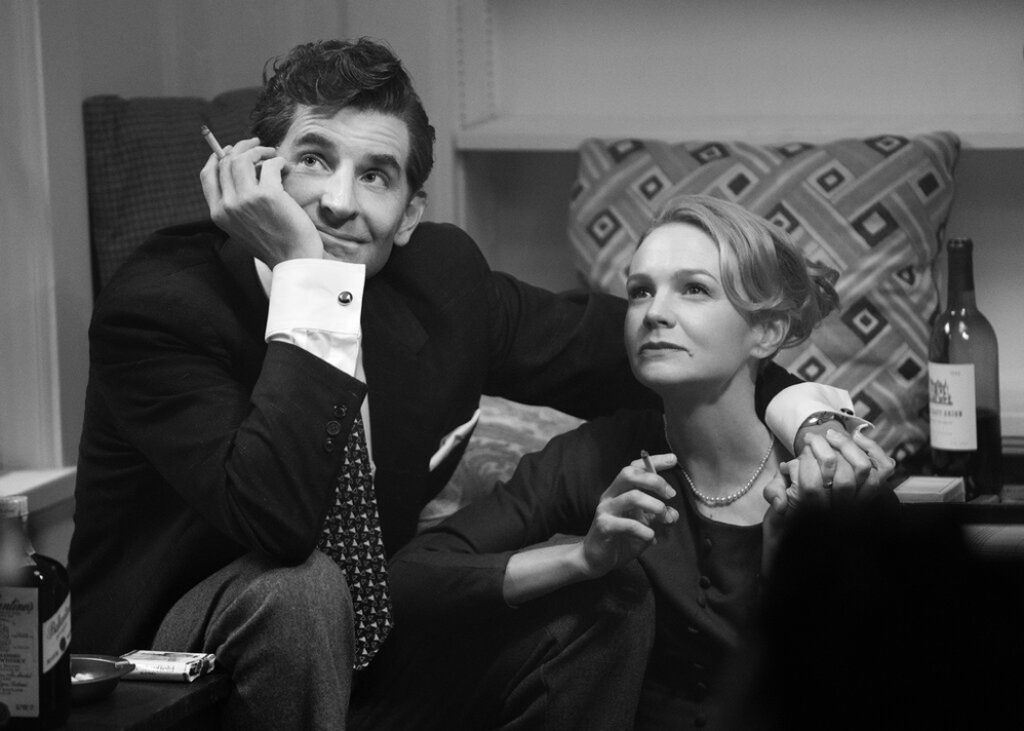
“To achieve great things, two things are needed: a plan, and not quite enough time.” —Leonard Bernstein
Bradley Cooper mounted the gargantuan project of cowriting, directing, and starring in Maestro (streaming on Netflix), a biopic showcasing the great Leonard Bernstein, who lived from 1918 to 1990 and whose legacy circled the globe. As a symphony conductor and music director of the New York Philharmonic, Bernstein became the most public figure in the American classical music world and is honored for his many Broadway compositions, especially the music of West Side Story. The word “maestro” barely captures the magnitude of his talent and recognition, but it’s a good start.
Playing Bernstein, Cooper enhanced his nose for resemblance, though some of his facial expressions needed tweaking. He also carved out a scene where he leads a symphony. Though Cooper never met Bernstein, he seems to feel some secret sense of identification with one of the most famous men on earth, which, I suppose, is no longer secret.
There are so many components to Bernstein’s huge legacy. But for reasons I have yet to decode, Cooper all but confines the story to the highly personal. Maestro is about Bernstein’s marriage to actress Felicia Montealegre, who is very well portrayed by Carey Mulligan. Their marriage was the loving union of two fine, educated, talented people who were both chain smokers. And most of all, Maestro focuses on Bernstein’s bisexuality; the love of a devoted couple had to survive an overwhelming challenge. We wonder why Cooper reduced this world-renowned maestro to a private part of his life. But we proceed.
When Felicity agreed to marriage, she knew about Bernstein’s appetites but hoped their family life (they produced three children) would keep him closer to home. These were the days before the threat of HIV. But Bernstein’s lifestyle was taboo, though he continued his pursuits with little discretion, unlike the rigorous discipline of his professional life. While the couple tried to hide this secret, Bernstein’s overt behavior kept the public whispering and wondering.
For viewers interested in the hidden details about an iconic music conductor, Maestro is an intimate and indulgent experience. But for those unfamiliar with Leonard Bernstein, this movie hardly shares the magnitude of who he was. With the focus on his sex life, significant years of his professional life were omitted. And the details of some of his achievements are just mentioned in the running dialogue.
Maestro features a strong cast (including Sarah Silverman, who is hard to recognize). And the delivery, dialogue, and pacing keep the story moving, though we are observing a dim corner of a huge life under a microscope. I searched (in vain) for a reason why Cooper chose this focus. And many websites confirm that Bernstein’s children were consulted for the film. But if we were expecting Maestro to show us who the great Bernstein was, we might feel like we were dining at a five-star restaurant that only served us tea.
When we shine a light on one dimension of a highly accomplished person, which these days has become a sport, is there an upside? Does it help us understand who he was? Okay, a little. But will we think differently of him, critically or sympathetically? Humans are reliably imperfect; each of us has plenty of dust under the rug. This unsolvable difference was between a man and wife. And if they were still alive, they would have my complete sympathy, if it were any of my business.
